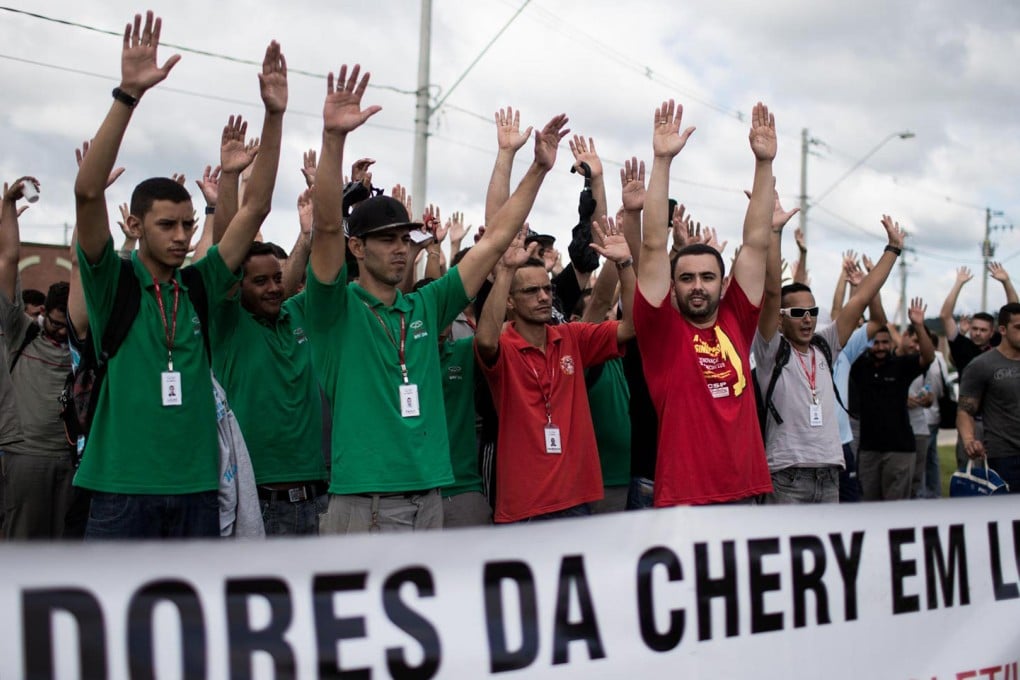Workers protest conditions at China's Chery plant in Brazil
Production halted as workers strike over salaries, safety standards and lack of trainingat car manufacturer's new operations near Sao Paulo

When Guirà Borba, 27, was hired by Chery in November 2013 he never imagined his Chinese dream would end so soon.
"I was happy to join a company which was then building an entire new factory. I was also excited by the idea of travelling to China for training", explained the young assembly operator, referring to Chery's US$400 million car plant in Jacareí, an industrial region located outside Sao Paulo.
In December 2013 he travelled with 10 Brazilian colleagues to Ordos, Inner Mongolia, to receive two months of training. It was then the honeymoon with the Chinese state-owned car company started to collapse.
"They put us in two apartments where there was not a fridge or a stove, and we had to share bunk beds. The place was very dirty," said Borba.
"We learned from Chinese workers who did not speak Portuguese, so we had to communicate with them using mime and online translators installed in our mobile phones. This is not the best way to teach people how to build a car."
Anderson Santos, a former Chery employee in Brazil who also travelled to China for training, backed up Borba's account.